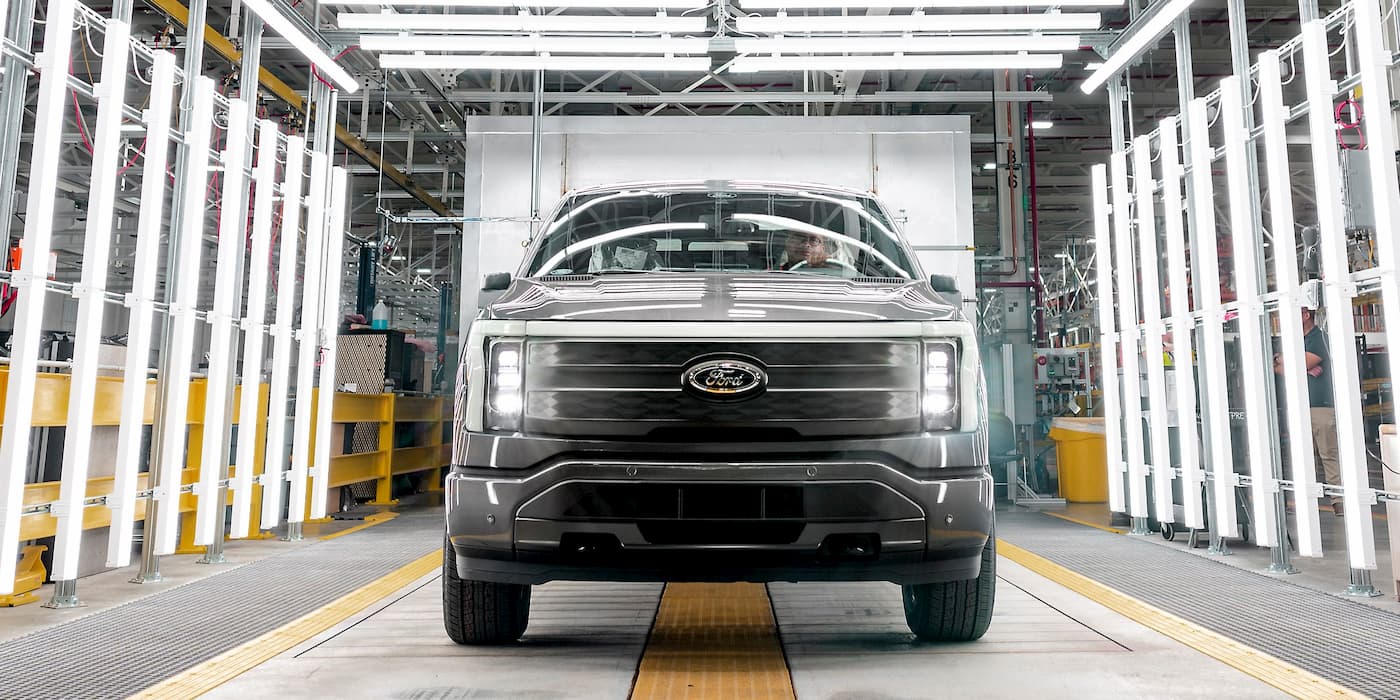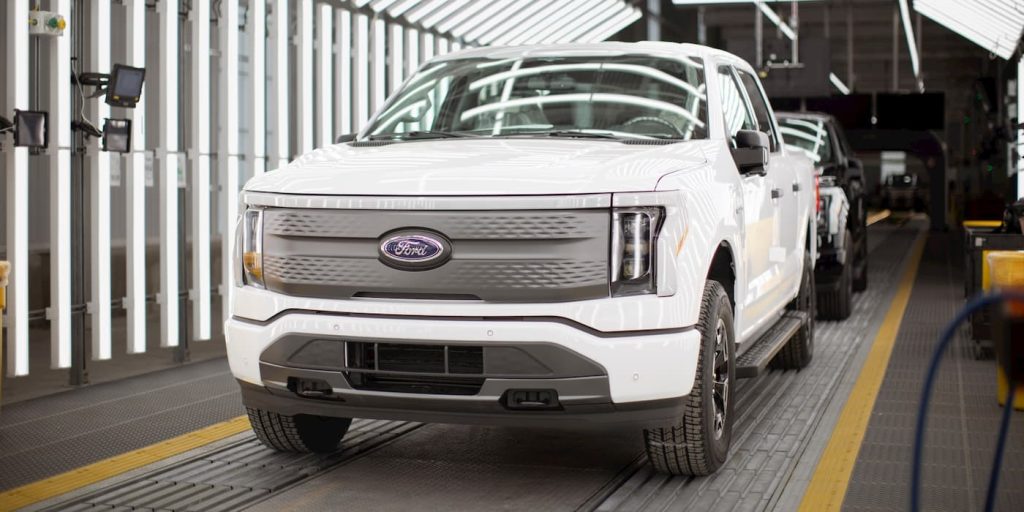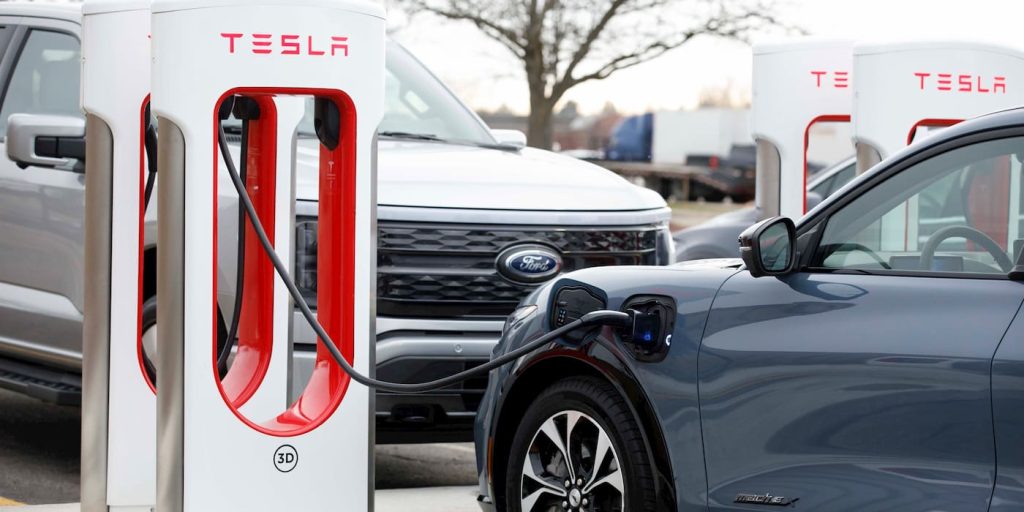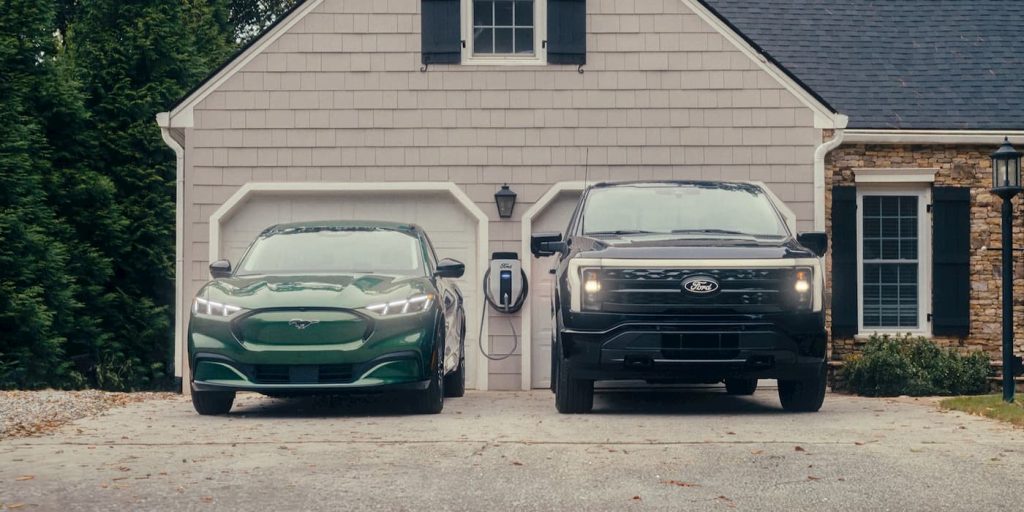
Ford is halting F-150 Lightning production in mid-November as the once best-selling electric pickup faces a wave of new competition. The company will stop building models at its Rouge EV center in Michigan for nearly two months.
Ford will pause output at its Rouge Electric Vehicle Center amid “slower-than-expected” demand for the all-electric pickup truck.
The pause comes after Ford cut its workforce at the plant by one-third earlier this year. No job cuts were included as workers were either reassigned or offered retirement.
Starting in April, 700 of the 2,100 workers were transferred to the Michigan Assembly plant, while another 700 were offered a retirement package or the opportunity to join the others to help build the Bronco and Ranger in MI.
Ford spokesperson Martin Gunsberg confirmed to Electrek earlier this year that the facility had been running three crews working two shifts, which dropped to one crew working one shift in April.
The Dearbon-based automaker is now preparing to pause output at the Rouge EV plant for several weeks.

Ford plans F-150 Lightning production halt in Michigan
Ford spokesperson Jessica Enoch said in an email to Electrek, “We continue to adjust production for an optimal mix of sales growth and profitability.”
The pause will begin after the work day on Nov 15. However, with the plant only running on weekdays, Nov 15-16 would not have been production days.
Enoch confirmed the first day down will be Nov 18, with production resuming on Jan 6, 2025. The pause includes the holiday break week, starting Dec 23, at all US Ford plants.
Ford’s latest hurdle comes after it was topped by crosstown rival GM in US electric vehicle sales last quarter.

With a record 32,095 EVs sold in Q3, GM surpassed Ford, which sold 23,509 electric models. GM is now ahead in the US through the first nine months with 70,450 EVs sold, compared to Ford at 67,689.
Ford’s electric pickup faces a new wave of competition, with Tesla’s Cybertruck, the Chevy Silverado EV, and the GMC Sierra EV rolling out.

According to Cox Automotive, Tesla’s Cybertruck was the third best-selling EV in the US in Q3, with 16,692 models sold. In comparison, Ford sold 7,162 F-150 Lightnings last quarter.
With the new lower-priced Chevy Silverado EV LT now available and GMC’s Sierra EV rolling out, it will be fun to see where the rankings end up next year.
Through its new “Power Promise,” Ford is giving EV buyers a free Level 2 home charger and covering the cost of standard installation. The company said the new program is designed to help show buyers the true benefits of driving an EV, like waking up with a full charge every morning.
Electrek’s Take
Although Ford topped Q3 revenue and EPS estimates earlier this week, the company’s Model e EV unit reported another $1.2 billion loss last quarter.
Ford’s EV business has now lost $3.7 billion through the first nine months of the year. The company said an 11% drop in volume was due to “competitive market dynamics.” The lower volume and “industry-wide pricing pressure” led to revenue slipping 33% YOY to $1.2 billion.
Top comment by Noah Mayer
Maybe the number of people who can afford $75-$95k trucks willing to risk it on a new technology (to them) has been exhausted. To sell more, I guess they need to either lower the price or make them a lot better to create more demand. Considering they are going making a new smaller EV truck in the next couple years, it's a hard decision.
CEO Jim Farley said the company has taken “tough actions” to establish an advantage in upcoming areas, including next-gen EVs and software.
On the company’s earnings call, Farley said its new mid-size electric pickup, due out in the second half of 2027, will “match the cost structure of Chinese OEMS building in Mexico.” The comments were likely directed at BYD, which launched its first pickup truck, the Shark PHEV, which will rival Ford’s Ranger.
Ford will begin producing LFP batteries in Michigan in 2026, which should help the company cut costs.
According to Farley, Ford’s “skunkworks” team in California has “over-delivered” on the company’s new low-cost platform as it looks to regain leadership.
FTC: We use income earning auto affiliate links. More.


Comments